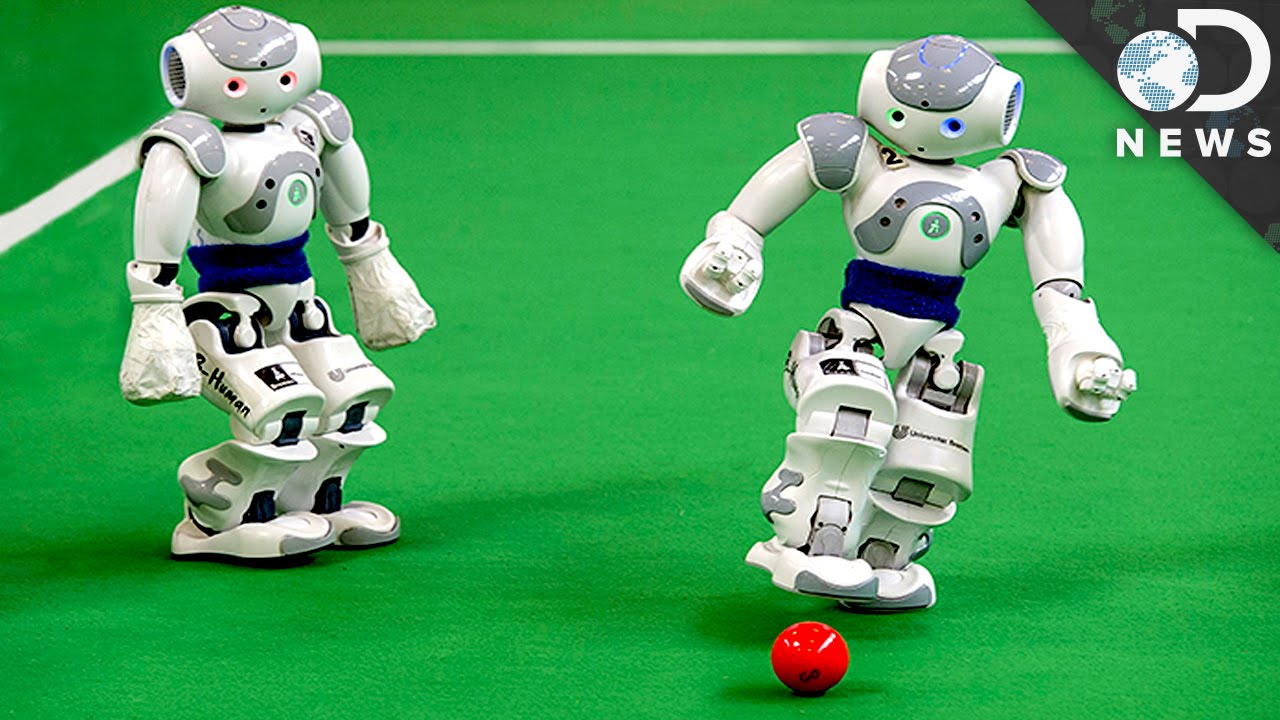
Google’s DeepMind has achieved a significant milestone in the field of artificial intelligence (AI) by training miniature humanoid robots to play football. The robots, which were initially trained in virtual environments, demonstrate impressive movement capabilities and a basic understanding of the game, showcasing the potential of AI in teaching robots complex physical tasks.
DeepMind, known for its advancements in AI research, embarked on a project to train AI-powered robots to play football. The process began with virtual simulations, where the robots learned the fundamental skills and strategies of the game. Once proficient in the virtual environment, the technology was transferred to real robots to test their physical capabilities.
In shambolic yet intriguing footage released by DeepMind, the miniature humanoid robots display remarkable movement skills. They exhibit rapid recovery from falls, showcase kicking techniques, and demonstrate a rudimentary strategic understanding of the game. While their performance may appear imperfect and chaotic, it highlights the significant progress made in enabling AI to teach robots physical tasks.
The research conducted by DeepMind sheds light on the potential of AI in enhancing robots’ agility and decision-making abilities in dynamic environments such as sports. By leveraging AI algorithms, robots can learn to adapt to unpredictable situations, make split-second decisions, and improve their overall performance in complex physical tasks.
The development of AI-driven robots capable of playing football opens up possibilities for applications in various fields. Beyond the realm of sports, the skills and capabilities acquired by these robots have implications for industries such as manufacturing, logistics, healthcare, and even search and rescue operations.
DeepMind’s work represents a significant advancement in the field of robotics and AI. The ability to train robots to learn and execute physical tasks through AI algorithms brings us closer to a future where intelligent machines can assist humans in a wide range of domains. It also underscores the importance of ongoing research and collaboration between AI experts and robotics engineers.
While the footage may showcase the robots’ occasional fumbles and imperfect movements, it is important to recognize the significance of the progress made by DeepMind. The project not only demonstrates the technical capabilities of AI but also opens up new possibilities for the integration of AI-powered robotics in various industries.
As AI continues to advance, the research conducted by DeepMind serves as a testament to the potential of AI in teaching robots complex physical tasks. While there is still much to explore and refine, the ability to train robots using AI algorithms brings us closer to a future where intelligent machines can perform intricate physical tasks alongside humans.
The developments made by DeepMind in training AI robots to play football mark another step forward in the ongoing quest to create machines that can learn and adapt in dynamic environments. The implications extend beyond the football field, offering insights into the future of robotics and the role of AI in transforming industries and improving human-machine collaboration.

